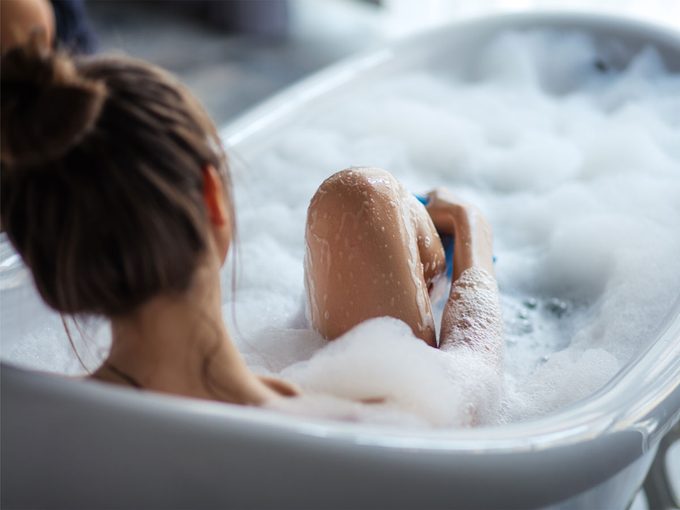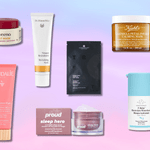How To Prevent An Eczema Flare-Up As The Cold Weather Rolls In
'Tis the season for flare ups after all.

Also called dermatitis, eczema describes a group of diseases that cause inflammation of the skin. It creates non-contagious dry, red, itchy and swollen patches or bumps, which may also flake, ooze and crust. Eczema most commonly appears in the creases of inner arms and the backs of knees but can occur anywhere on the body.
What causes eczema?
When your largest organ (that’s skin!) is unhappy, you’re bound to notice. But the culprit can remain a mystery: an irritation can be a response to an outer element or the result of an internal predisposition.
“There are different types of eczema,” says Dr. Mark Lupin, a dermatologist and director and founder of Cosmedica Laser Centre in Victoria, B.C. “With atopic eczema, the more common inherited type, the functions of the skin and immune system are impaired. And there are also contact reaction type eczemas, such as an allergic reaction to metal jewellery,” says Dr. Lupin. Paying attention to daily routines, interactions and/or changes in your lifestyle can help uncover the cause. Here are 15 causes you might be ignoring.
The protocol to prevent eczema starts with eliminating common irritants.
Say no to perfumed products and drying soaps. “Most ‘natural’ soaps are lye-based and very drying — so [it’s] best to avoid [them],” says Dr. Lupin. (Try Skinceuticals Gentle Cleanser, $44.) It’s ideal to choose unscented or fragrance-free options for products making indirect contact with skin (think: laundry soap and fabric softener). Dr. Lupin also recommends avoiding the use of bleach in laundry.
Keeping skin moisturized is a key second step, which can be more challenging at this time of year. “Cold weather can dry the skin, and wind, reduced humidity and heated dry homes and workplaces can all aggravate eczema. In the winter months, eczema may also flare up from relative lack of sun,” says Dr. Lupin.
Try a basic unscented moisturizer. “One that contains ceramides and free fatty acids will help replenish innately dry skin with missing protective elements. Whenever you try a new skin-care product, always test it on a small area of the skin before using it more widely,” he says. (Try A-Derma Exomega Control Emollient Balm, $27.) For immediate, but temporary, relief 1 percent hydrocortisone cream is an over-the-counter option that can offer anti-inflammatory benefits. (Try Gold Bond Ultimate Eczema Relief 1% Hydrocortisone Cream, $13.) “If it does not improve in the course of a few days to a couple of weeks, then it would be better to seek expert medical attention. If there is soreness of the skin, it’s best not to use this and instead see your physician.”
Tried everything above and still suffering?
Then it’s time to see a pro and access more effective therapy. “The newest treatments include a novel prescription, recently FDA-approved, called crisaborole or Eucrisa. This is a non-cortisone topical ointment that reduces inflammation by blocking an enzyme,” says Dr. Lupin, “And a new systemic biologic medication called Dupilumab, or Dupixent, is now Health Canada-approved for more severe atopic eczema. It is an exciting addition to the treatment [methods] as it treats at the root cause of inflammation by inhibiting proteins. Moisturizers are also becoming more intelligent. Rather than just coating the skin, many now contain ingredients that help improve its barrier function by supplying missing building blocks, promoting healthier skin from the inside out.” And if you’re currently fighting sensitive skin, check out these 3 steps to get to the bottom of your skin sensitivity.




